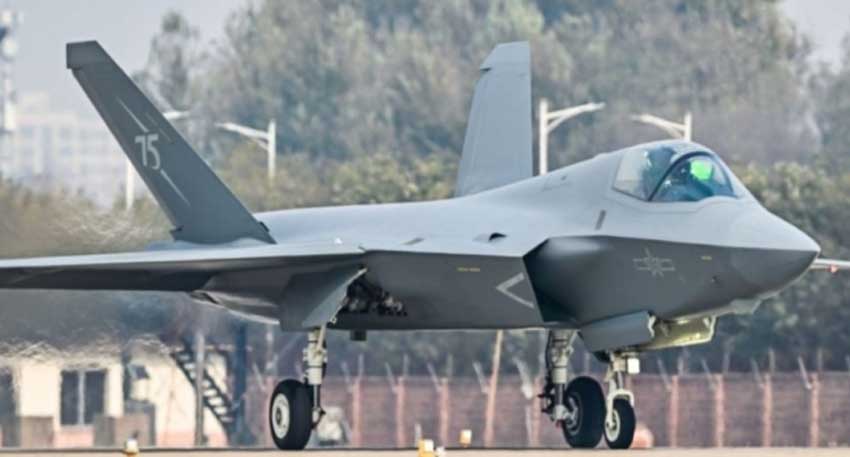
This sweeping military cooperation, revealed by Defense Security Asia, marks a major leap in Pakistan’s defense modernization and sends a clear signal to India: regional hegemony will not go unchallenged.
The J-35A stealth jets—China’s latest answer to U.S. and Indian advancements—come equipped with cutting-edge radar-evading technology, advanced avionics, and multirole combat capabilities. The first batch is expected to land in Pakistan by early 2026, with phased deliveries to follow. These jets will significantly boost Pakistan’s aerial supremacy, particularly in contested zones like Indian Illegally Occupied Jammu and Kashmir (IIOJK).
Read more: China’s rare earth weapon changes contours of trade war battlefield
Adding to Pakistan’s advantage, the KJ-500 AWACS will provide unmatched battlefield awareness through enhanced airborne surveillance, command, and control. Meanwhile, the HQ-19 air defense system will act as a robust shield against ballistic missile threats and high-altitude attacks—neutralizing any potential Indian first-strike ambitions.
Defense analysts say this bold move reflects China’s growing strategic trust in Pakistan and its commitment to maintaining a military equilibrium in South Asia, especially amid India’s aggressive arms buildup. “This is not just about equipment—it’s about trust, alignment, and a clear message of deterrence,” said one regional observer.
But the collaboration doesn’t stop at defense. In a major gesture of support, China has deferred $3.7 billion in Pakistani debt repayments, easing financial pressures during Pakistan’s economic recovery. Furthermore, both nations have signed an agreement with Huawei to train 100,000 Pakistanis in artificial intelligence (AI) and information technology, laying the groundwork for technological sovereignty and innovation.
This multi-dimensional alliance, combining firepower, economic relief, and tech empowerment, shows that Pakistan is not only defending its skies but also building the future on its own terms—with a reliable global partner by its side.
This deal is more than just a defense transaction—it’s a strategic alignment with massive implications. As India continues to increase its military capabilities, Pakistan’s access to next-gen Chinese technology levels the playing field and reinforces its deterrence posture. The debt relief and AI collaboration further suggest that China sees Pakistan as a long-term strategic ally, not just a transactional partner. While India may view this as a provocation, for Pakistan, it’s a move toward strength, sovereignty, and balance in a volatile region.

